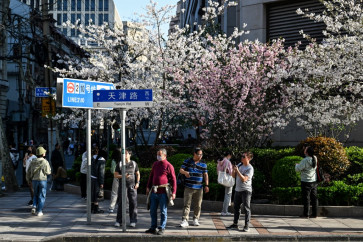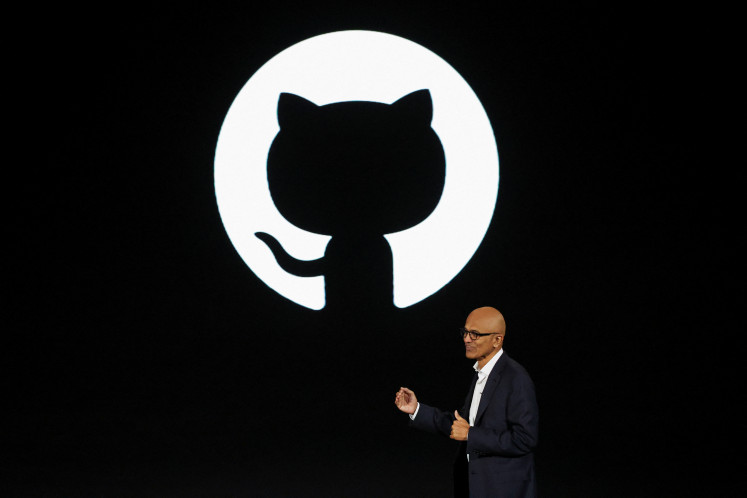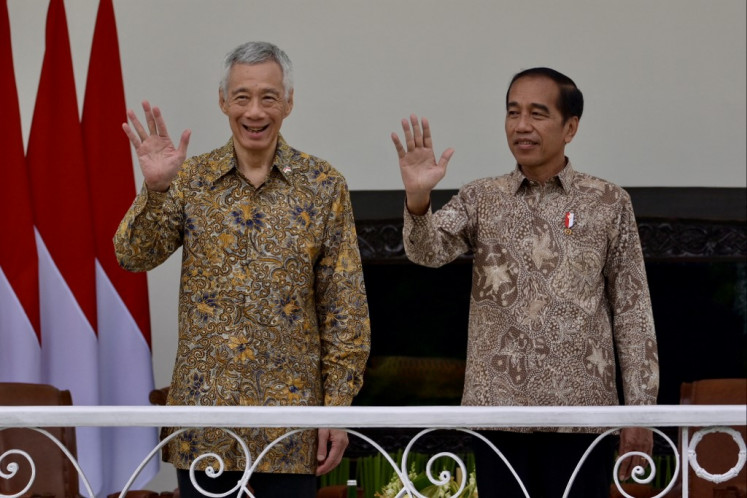Student loan program gets tepid response
“I would like to give all of you work
Change Size

“I would like to give all of you work. And that work is called student loans.”
These words were uttered by President Joko “Jokowi” Widodo about a year ago in a meeting with representatives of 114 banks at the State Palace. He urged the local banks to provide student loans to help more Indonesian students to pursue a higher education.
The student loan initiative hopes to increase access to tertiary education for high school graduates, part of the government’s comprehensive program to improve the quality of human resources in the country.
Several banks have since then responded to the call, offering loans with lenient requirements and loan limits to give high school and university graduates options in higher education. Yet, more than a year later, education-related loans have struggled to gain traction.
The managing director of state-owned Bank Tabungan Negara’s (BTN) distribution network, Budi Satria, said an educational loan program launched by the bank in 2018 received a lack of interest.
BTN, which specializes in mortgage loans, offers a student loan with a credit ceiling of Rp 200 million (US$14,500) and interest rate of 6.5 percent a year.
The loan is relatively affordable compared to general loans, yet few students have applied for it. Budi said that from April last year until July this year, the bank had disbursed a total of Rp 33.83 billion to 470 students.
He added that he would continue to spread awareness on the program to mitigate the problem, although he did not specify how the bank would attempt to do so.
State-owned lender Bank Mandiri shared the same struggle, with the head of its loan program group, Wawan Setiawan, saying that university students were afraid to take on loans despite the bank’s low interest rates.
Similar to BTN, Bank Mandiri launched its university loan in 2018 with installments at around Rp 400,000 per month. The credit limit for students of low-income households is Rp 75 million with a 10-year tenor. It requires recipients to maintain a 3.5 grade point average to get the loan.
As of August, Mandiri had disbursed Rp 773 million to 22 student loans, with an average lending sum of Rp 35 million.
Wawan said the bank would soon join hands with more campuses in the future to add to the list of partner universities and increase the number of student loan recipients.
Some privately owned banks previously followed suit, although data from research institute SMERU showed that they operated on a relatively small scale with an average of 5,000 clients per year.
“If we decide to maintain current patterns, the poor will
continue to struggle to pay for tertiary education as the rich get easy
access to it.”
Despite the tepid interest in loans, senior policy protection specialist and education expert Dyah Larasati of the National Team for the Accelerated Poverty Reduction (TNP2K) nonetheless saw the need for similar programs that could boost the country’s university enrollment rates.
A study published by SMERU showed that while access to tertiary education had improved over the years, only 13 percent of all students in 2018 were in the bottom 40 percent of the country’s income brackets.
Last year, the Research, Technology and Higher Education Ministry reported that 7.5 million individuals had received access to higher education. The figure is only 32.9 percent of the total population of those aged 19 to 23 years old, which accounts for around 80 million to 107 million people.
Furthermore, a 2010 World Bank study showed that financial aid provided by universities only covered 3 percent of total costs while government-funded scholarships were limited.
Such fund shortages would then translate into a lack of employability for nonuniversity graduates in the labor market, Dyah said.
SMERU researchers said the current time-contingent loan model was unfair for low-income people, as it forced them to quickly repay loans, making a difficult economic situation even more burdensome.
To compare Indonesia’s situation to that of the United States, which had inspired Jokowi to make his speech on the matter, student loans accounted for almost $1.5 trillion spread over 44 million borrowers in 2017, as 2018 data from Student Loan Debt Statistics show. However, around 4.3 million students who took out loans defaulted on loan payments.
The SMERU study proposed a government-run income-contingent loan program, where repayment starts once income passes a certain threshold. Researcher Elza Samantha Elmira suggested an annual median income of about Rp 13 million, or around Rp 1.5 million monthly, which she deemed attainable for university graduates.
She explained that the payments would be set proportionally based on an age-earnings profile — the higher the wage, the higher the percentage is.
To ensure repayments happen, the report then recommended that the Finance Ministry spearhead the program by integrating the loan into the debtors’ income tax system.
“If we decide to maintain current patterns, the poor will continue to struggle to pay for tertiary education as the rich get easy access to it, worsening economic disparities overall,” Elza said.
Without any government intervention, Elza estimated it would take four decades for the country to reach a 50 percent tertiary education enrollment rate for university graduates aged 18 to 24.









